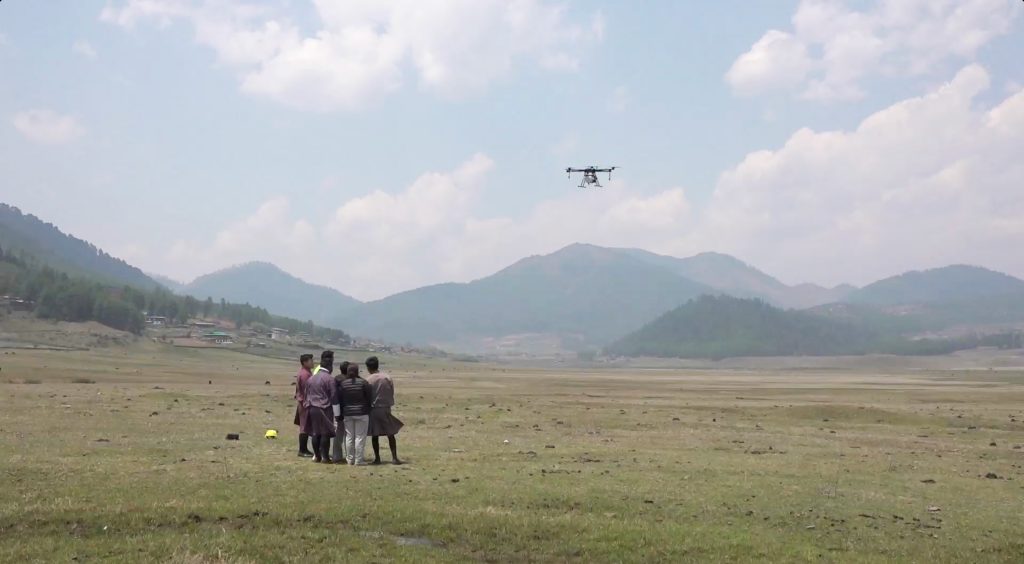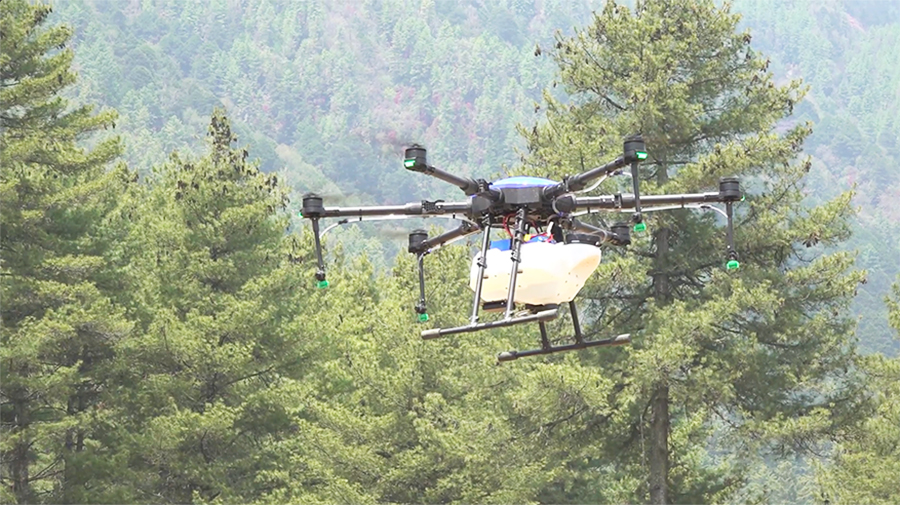
Using drone technology in agricultural work is gaining momentum across the globe. Drones are small or medium-sized unmanned aerial vehicles. In Bhutan, the Ministry of Agriculture and Livestock is exploring drone usage for spraying fertilisers and other chemicals. In Wangdue Phodrang’s Gangtey Gewog, about 30 local leaders and agriculture officials took part in a three-day hands-on training on drone operations.
 The battery-operated drone weighs 25 kilograms and has a 10-litre tank to store fertilisers and seeds which can be sprayed over agricultural fields.
The battery-operated drone weighs 25 kilograms and has a 10-litre tank to store fertilisers and seeds which can be sprayed over agricultural fields.
This drone, the only one in the country, cost almost Nu 1 M and was purchased with support from the Food and Agriculture Organisation.
The trainees, who are using drones for the first time, learned the basic operation of the machine.
Since this is the only agricultural-purpose drone in the country, it will be kept at one of the Agriculture Machinery and Technology Centres for use during emergencies.
“We want to use this drone for fertiliser application, especially for top dressing, while also training participants from various organisations such as research centres and central organisations to provide them with hands-on training here,” said Bal Bahadur Rai, agriculture officer of the Department of Agriculture, MoAL.
Introduced for the first time in the country, officials say that apart from easing farming tasks, the drone will also reduce health hazards for farmers.
“I believe that one drone can accomplish the work of around five people. Manual spraying of chemicals requires significant effort and struggle. We must carry the chemicals on our backs and work tirelessly. However, with this drone, we won’t have to bear the burden of carrying chemicals ourselves,” said Lhakpa, a resident of Gangtey Gewog, Wangdue Phodrang.
However, the trainees said that the training duration is short and should be more comprehensive.
“I believe we need additional and separate training sessions for spraying chemicals and fertilisers. In the three-day training so far, we have learned how to take off, manoeuvre the drone, and perform aerial turns,” said Ugyen Dorji from the National Plant Protection Centre.
The battery lasts for up to 18 minutes, which is enough to spray two tanks of fertilisers.
The ministry will decide on purchasing more drones after the trial usage. The three-day training ended today.
Changa Dorji, Wangdue Phodrang
Edited by Sherub Dorji









